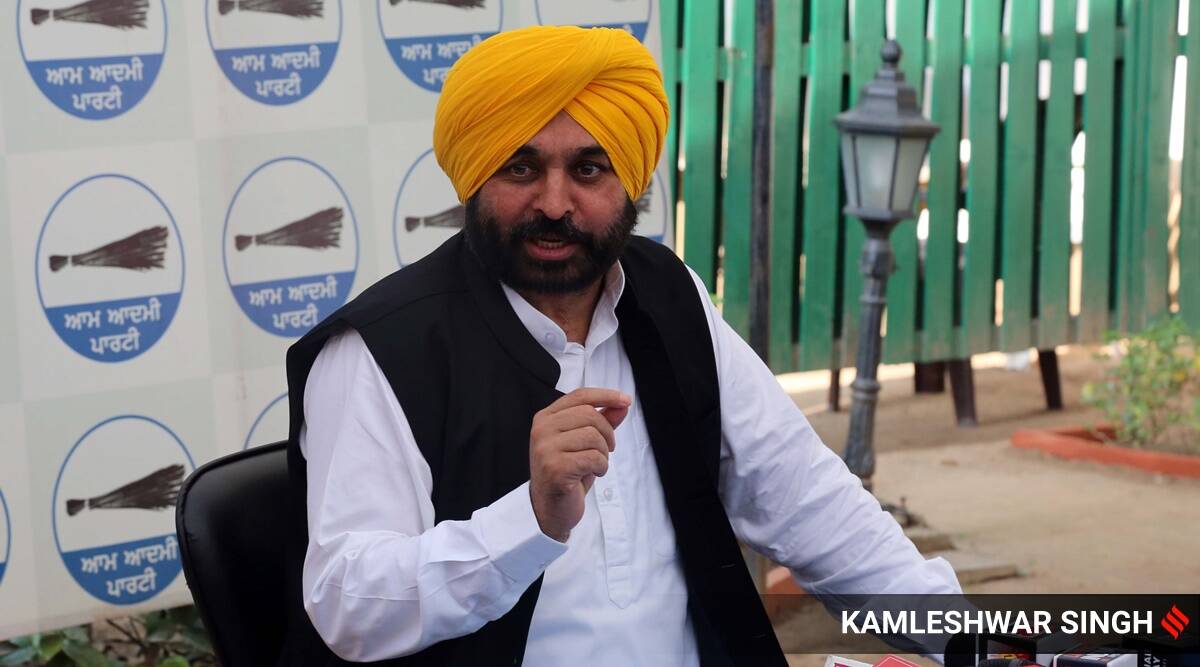 Punjab CM Bhagwant Mann (File)
Punjab CM Bhagwant Mann (File)Sixteen farmer unions Sunday rejected the electricity supply schedule issued by Punjab government for the upcoming paddy sowing season, asserting that they will start transplanting the crop from June 10. Farmers have even threatened an agitation to press government to meet power demand from June 10 itself.
The state government has decided to allow paddy sowing in a staggered manner, beginning from June 18 with the aim to lessen the burden on electricity and conserve underground water.
But the move has left farmers with short-duration varieties as their only option. In Punjab, where 32% area is given under the long duration paddy varieties because of their high yield guarantee, farmers are not happy with the government’s decision.
Agri scientists, however, have been backing short-duration varieties. Farmers on Sunday said they will start transplanting from June 10. They reveled their decision after a meeting with the chairman and managing director of power utility Punjab State Power Corporation Limited.
Best of Express Premium
As per government schedule, from June 18, paddy transplantation would start in Sangrur, Barnala, Malerkotla, Ludhiana, Patiala and Fatehgarh Sahib districts, while sowing will commence from June 22 in Bathinda, Mansa, Moga, Faridkot, Ferozepur and Fazilka, according to a government notification.
From June 24, paddy sowing will start in Mohali, SBS Nagar, Kapurthala, and Muktsar, and from June 26, it will start in Gurdaspur, Pathankot, Hoshiarpur, Amritsar and Tarn Taran districts.
The government has also allowed paddy sowing with direct seeding of rice technique from May 20. Electricity supply to farmers for irrigation will start from the dates fixed for the commencement of paddy sowing, the notification read.
After the meeting with the PSPCL chairman, farmers said they completely reject the new schedule for paddy sowing and electricity supply announced by the state government.
Bharti Kisan Union (Dakaunda) president Buta Singh Burjgill termed the move “dictatorial” and said it was not acceptable.
“The government did not consult with farmers before releasing the sowing and electricity supply schedule,” he said.
Burjgill said farmers would start paddy sowing from June 10. He added that they would hold an agitation to press the state government to ensure supply of electricity from June 10.
The farmers further demanded 12 hours of power supply from the PSPCL against the eight hours of proposed supply. Another farmer leader Harmeet Singh Kadian said they will announce their next course of action in their next meeting on May 20.
Long duration varieties which are popular among farmers of the state include Pusa-44, which was developed by Pusa institute, New Delhi in 1993, Peeli Pusa, and Dogar Pusa, which are locally available to the farmers, and these take 130 to 132 days after paddy transplanting in the field and with nursery period these varieties take 158 to 165 days and provide only 0-5 days between paddy harvesting and wheat sowing. These varieties require 31-32 irrigation cycles.
All short-duration varieties require only 20-21 irrigation cycles as the transplanting of short varieties happens closer to the arrival of the south-west monsoon rains, said experts.
According to PAU, in 2012, 39% of Punjab’s paddy area was under Pusa-44 which came down to 20% in 2020 but again it went up to over 32% last year. Across round 8 districts of the state in the Malwa region including Sangrur, Mansa, Barnala, Moga, Bathinda, Ludhiana, Faridkot and Muktsar, 40-70% area is still comes under Pusa-44 and other long-duration varieties.
While farmers claim that they get 32 to 36 quintals yield from Pusa-44 and other Pusa varieties, but as per surveys and studies conducted by PAU scientists including Dr Buta Singh Dhillon, Aegronomist (Rice), PAU, farmers are getting 32.3 quintals from Pusa-44 against 29.6 and 30.6 quintals from PR-126 and PR-121 varieties, respectively. However, when other expenditures like usage of tractor, fertilisers, pesticides, labour, harvesting etc. are calculated then the net profit to the farmer comes to 38,343 per acre from PR-126 (short-duration) against Rs 38,241 from Pusa-44 per acre. Also, PR-126 provides 28-40 days between paddy harvesting and wheat sowing.
Short varieties save 10 lakh liters to 16 lakh liters per acre in the entire crop duration, said experts.
Director Punjab Agriculture Dr. Gurvinder Singh said that PAU never recommends “longer varieties and we are educating farmers to go for shorter varities which can give ample time to manage the stubble”.
(With inputs from the Press Trust of India)
- The Indian Express website has been rated GREEN for its credibility and trustworthiness by Newsguard, a global service that rates news sources for their journalistic standards.

